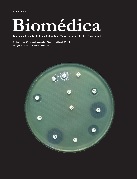The world’s microbiology laboratories can be a global microbial sensor network
Abstract
The microbes that infect us spread in global and local epidemics, and the resistance genes that block their treatment spread within and between them. All we can know about where they are to track and contain them comes from the only places that can see them, the world’s microbiology laboratories, but most report each patient’s microbe only to that patient’s caregiver.
Sensors, ranging from instruments to birdwatchers, are now being linked in electronic networks to monitor and interpret algorithmically in real-time ocean currents, atmospheric carbon, supply-chain inventory, bird migration, etc. To so link the world’s microbiology laboratories as exquisite sensors in a truly lifesaving real-time network their data must be accessed and fully subtyped.
Microbiology laboratories put individual reports into inaccessible paper or mutually incompatible electronic reporting systems, but those from more than 2,200 laboratories in more than 108 countries worldwide are now accessed and translated into compatible WHONET files. These increasingly web-based files could initiate a global microbial sensor network.
Unused microbiology laboratory byproduct data, now from drug susceptibility and biochemical testing but increasingly from new technologies (genotyping, MALDI-TOF, etc.), can be reused to subtype microbes of each genus/species into sub-groupings that are discriminated and traced with greater sensitivity. Ongoing statistical delineation of subtypes from global sensor network data will improve detection of movement into any patient of a microbe or resistance gene from another patient, medical center or country. Growing data on clinical manifestations and global distributions of subtypes can automate comments for patient’s reports, select microbes to genotype and alert responders.
Downloads
| Article metrics | |
|---|---|
| Abstract views | |
| Galley vies | |
| PDF Views | |
| HTML views | |
| Other views | |


























